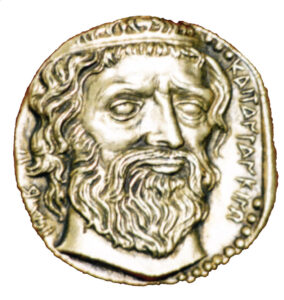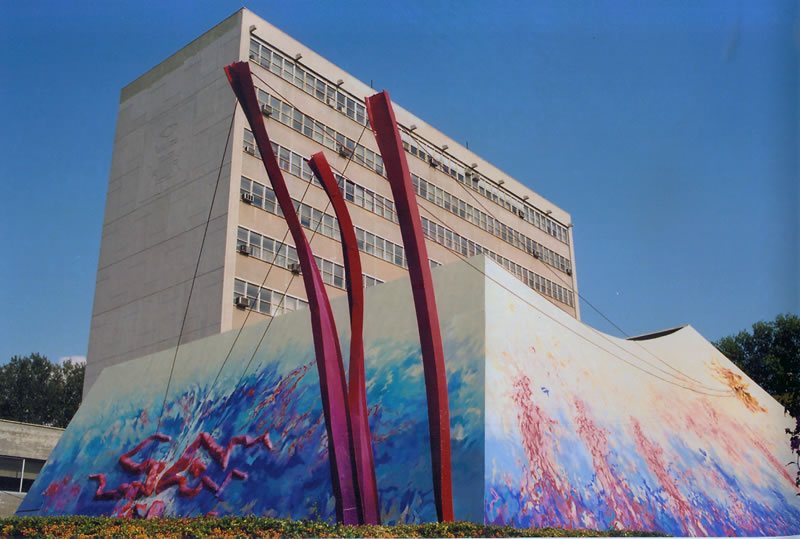The Faculty of Engineering
The Aristotle University of Thessaloniki (AUTH) was founded in 1925 (Law no. 3341/14-6-25) and initially comprised five Faculties, the Faculty of Theology, the Faculty of Philosophy, the Faculty of Medicine, the Faculty of Law and Economics and the Faculty of Natural and Mathematical Sciences.
The Faculty of Engineering, the last major Faculty of the Aristotle University of Thessaloniki, was founded in 1955, with three Schools: the School of Civil Engineering (1955), the School of Architecture (1957) and the School of Rural and Surveying Engineering (1962)



In 1957, the Faculty decreed as its emblem and official seal the bust of Archimedes with the words ΠΑ ΒΩ ΚΑΙ ΤΑΝ ΓΑΝ ΚΙΝΩ (“give me a place to stand, and I will move the Earth”) inscribed on it, while the colour of the School was designated yellow.
In 1972 the Schoolls of Chemical Engineering and Mechanical-Electrical Engineering were established, which in 1976 was divided into the School of Mechanical Engineering and the School of Electrical Engineering.
In 2004, the newest School of the Faculty was established, that of Spatial Planning and Development Engineering.
Today, with a history of almost 70 years, the Faculty of Engineering has gone through moments of tension and calm, has experienced all the events that have troubled the university community and has actively participated in its strivings and struggles. It has contributed to education and research, promoted solutions to the problems of Education, democratization and its reform, and has made a decisive contribution to the cultural life and development of the country, by organizing or participating in numerous cultural events, development programs and the execution of major projects in northern Greece. At the same time, building on the experiences of its strivings and the democratic traditions of the University of Thessaloniki, the Faculty significantly contributed to the struggle for the democratic course of the country.

